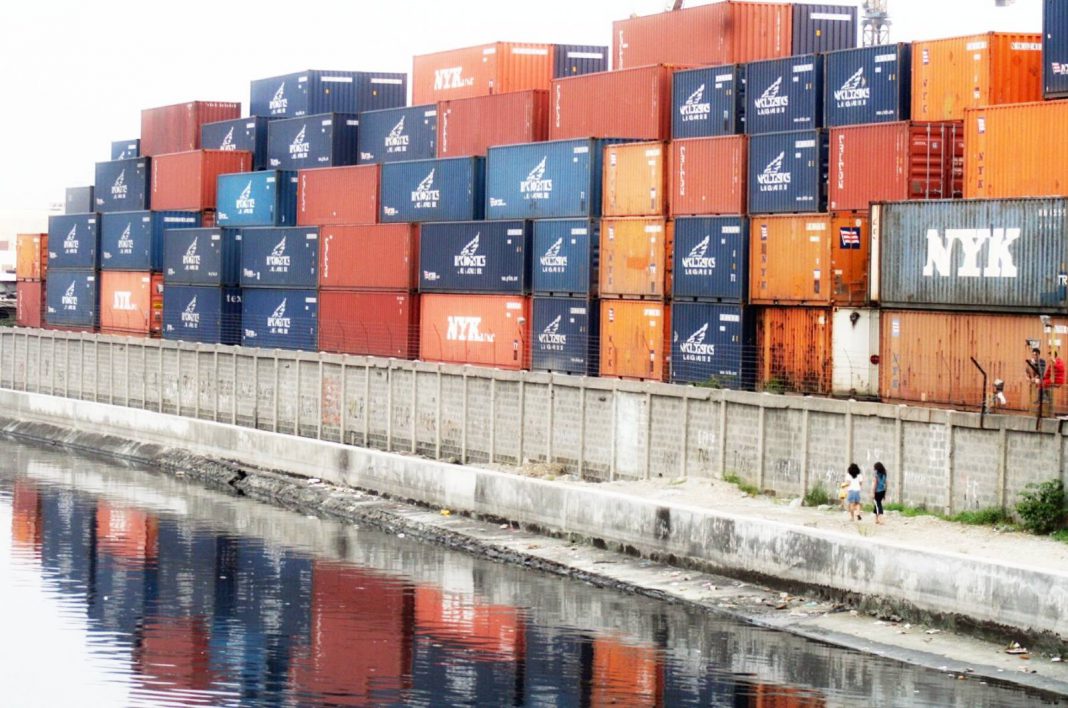Stockpile of shipping containers near the North Harbor
Photo file/THEPHILBIZNEWS
By Victoria “NIKE” De Dios
Since the time of the pandemic, a lot of things change, even the way the business needs to be conducted. With the imposed social distancing, health protocols, and contactless transactions for health and safety reasons. This prompted some companies to embrace digital transformation and integrate technology into their business. But not all companies are keen on the adoption and reservation is still strong for varies reasons.
But according to Cris John Garcia, a trustee at Philippine Institute for Supply Management, the micro, small and medium enterprises (MSMEs) really need to implement their own supply chain management (SCM) strategies, including the use of digital transformation, to propel their businesses to new heights.
“We need to deliver products and services at the right time, on the right price, and on the right place –these are the top objectives of supply chain management. I believe as a consumer, as a customer, no one will be happy if we will receive our orders after the time we need them. There are many products and services that are wasted if these are not delivered on time,” he said.
Garcia identified digital transformation as the most important SCM strategy that businesses, whether multinationals or MSMEs, implement especially these coronavirus pandemic lockdowns.
“It is a long-ago strategy, but I guess the pandemic has taught us that the best time to do this digital transformation for your supply chain is actually now, today, not tomorrow, but yesterday,” he said.
“Not all of us have prepared for a lockdown but I guess those who were able to prepare for a lockdown especially in the digital world were able to succeed in this pandemic.”
Garcia said some companies that reported positive earnings results in the second and third quarters this year were those that digitally transformed before the coronavirus lockdown.
“Whether you are from the goods, manufacturing sector, or if you are from the services sector, there is always the right digital transformation for you,” he added. “You don’t have to own a very high-end or high tech website. Sometimes, all you need to do is start-up a Facebook page to be able to reach more consumers, to more customers, to more clients.”
Garcia further said digital transformation does not only involve moving to an online platform but also looking at automating processes and documentation in the workplace.
“I think, when we reduce carbon footprint, when we reduce papers, we reduce cost. When we automate a process, we cut costs. When we automate an existing procedure, we reduce cost,” he said.
As companies automate the processes, Garcia said they reduce headcount and can reallocate some of them to other work in the business thus, become productive rather than doing manual jobs.
“And I think that also calls for sustainability. If we are paperless, if we are simple, if we are lean in terms of process, we are more sustainable. If we are leaner in terms of organization, operating cost will be cheaper, and (repetitive) human errors will be eliminated,” he said.
Garcia said the next and the most common supply chain strategy is distribution and reach, underscoring the importance of MSMEs that their products and services reach their customers.
“When one product is present in the farthest place (in the Philippines), that would mean that they have the best supply chain practices,” he added. “To be able to win consumers, to be able to win new customers, to be able to win new clients, you should have wider distribution, (and) wider reach.”
Garcia also cited the importance of outsourcing and co-manufacturing.
“In business, we just have to focus on the core or what we do and outsource things that are not part of our core business. For MSMEs, I always say that outsource parts of the business that are not your expertise,” he said, adding that implementing this strategy will enable them to generate savings.
Garcia said another SCM strategy is effective partnership and alliances, also called coopetition and cooperation.
“Nowadays, it is not bad to collaborate with our competitors because I think it’s now a strategy to reduce cost, it’s now a strategy to widen our reach, to be able to reach more far flung places and it is proven to be effective,” he said.
“Gone are the days that one truck carries one kind of product. It’s more effective, transportation is cheaper if one truck carries many products even from different competing companies… It’s a “win-win” solution that you can do as well for your business, whether you are an MSME, or you are a transport or a logistics provider,” he added.
Garcia further identified horizontal and vertical approaches as other supply chain strategies that firms can implement to boost their businesses.
Garcia also noted that the horizontal integration pertains to the strategy wherein a business would expand its operation by acquiring its competitors through mergers and acquisitions.
“Horizontal integration empowers the business to gain economies of scale and market power. As we integrate businesses, our opportunity to be more profitable increases,” Garcia said.
“Under the vertical approach in the supply chain, on the other hand, firms offer their customers a wide range of services or products”, he explained.














